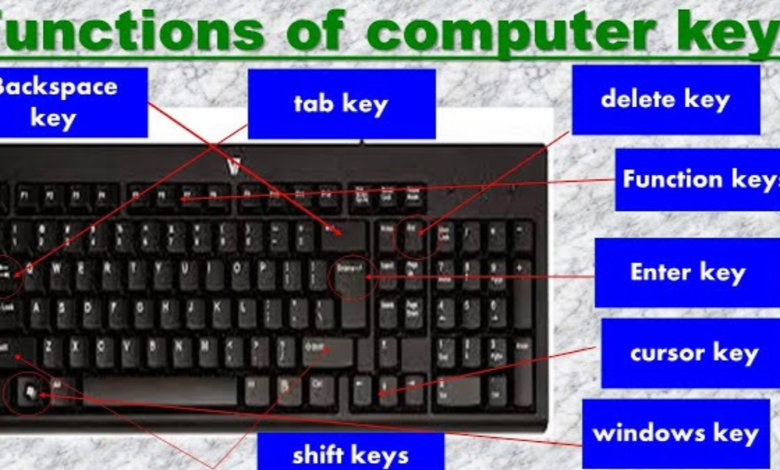Types of Keys: A Comprehensive Guide to Different Key Types and Their Uses

When it comes to securing access to homes, vehicles, offices, or sensitive information, keys are indispensable tools. They are more than just physical objects used to unlock doors—they are essential to maintaining privacy, safety, and security. But not all keys are the same. Over the years, various types of keys have been developed to suit different purposes, materials, and levels of security. In this article, we will explore the many types of keys, their functions, and how they contribute to securing our everyday lives.
1. Traditional Mechanical types of keys
What Are They?
Traditional mechanical keys are the most common types of keys that many people encounter daily. They are typically made of metal, such as brass, steel, or nickel, and they have unique cuts and grooves that correspond to the pins in a lock. The most recognizable feature of mechanical keys is the “tooth” or “cut” pattern on their blade, which aligns with a corresponding lock mechanism to allow the lock to turn and unlock.
Common Uses:
- House keys: Used for residential properties to unlock doors.
- Car keys: Older car models often use traditional mechanical keys to start the ignition and unlock doors.
- Padlocks: Often used for securing gates, storage units, and bikes.
Advantages:
- Easy to use and replace.
- Cost-effective.
- Widely available.
Disadvantages:
- Can be easily duplicated, increasing the risk of unauthorized access.
- Susceptible to wear and tear over time, leading to malfunctioning keys and locks.
2. Key Fobs and Remote Keys
What Are types of keys?
Key fobs and remote keys are advanced versions of mechanical keys that use radio frequency (RF) technology to communicate with the lock. They are often used in modern cars, home security systems, and office access systems. These keys are typically small electronic devices with buttons for locking/unlocking doors or starting a car without inserting a key.
Common Uses:
- Cars: Modern cars use key fobs to remotely start the engine, unlock doors, and activate the car alarm system.
- Building security systems: Many office buildings and residential complexes use key fobs to provide secure access to different areas.
- Hotel room access: Hotels often provide key fobs to guests for room entry.
Advantages:
- More secure than traditional keys because they are harder to duplicate.
- Convenient for users who don’t need to physically insert a key.
- Offers additional features, such as remote start and keyless entry.
Disadvantages:
- Can be expensive to replace if lost or damaged.
- Susceptible to hacking or interception by thieves using advanced technology.
3. Master Keys
What Are They?
A master key is a type of key that is designed to open multiple locks, each with its unique types of keys. This system is commonly used in commercial and institutional settings. While a standard key can only open one lock, a master key allows authorized individuals to access multiple locks within a building or complex without needing a separate key for each one.
Common Uses:
- Apartment complexes: Property managers or maintenance staff often use master keys to access multiple apartments or facilities.
- Hotels: Hotel managers may use master keys to access rooms for cleaning or emergencies.
- Offices and schools: Security personnel or administrators use master keys to access different rooms and areas.
Advantages:
- Allows for greater convenience and flexibility for authorized personnel.
- Reduces the number of keys that need to be carried around.
Disadvantages:
- Poses a security risk if lost or stolen since one master types of keys can access multiple areas.
- Requires careful management and control to ensure that unauthorized individuals do not gain access.
4. Electronic or Smart types of keys
What Are They?
Electronic or smart keys are a modern and sophisticated types of keys used primarily in high-security systems. They are typically integrated into electronic devices like smartphones, key cards, or key fobs, and they use encryption technology to provide secure access. Smart keys are often used in conjunction with advanced locking mechanisms such as biometrics, facial recognition, or keypads.
Common Uses:
- Smart homes: Homeowners use smart keys to control door locks, security systems, and even appliances remotely via smartphones or other devices.
- Cars: Some modern cars come with keyless entry and start systems that use smart keys.
- Offices: Companies use smart keys and key cards to control access to secure areas, such as server rooms or restricted zones.
Advantages:
- Highly secure due to advanced encryption and authentication methods.
- Convenient, as they can be accessed remotely.
- Offers additional features like tracking and monitoring access.
Disadvantages:
- Expensive to install and replace.
- May be susceptible to technological failures or malfunctions.
- Requires regular software updates and security maintenance.
5. Transponder Keys
What Are They?
Transponder keys are a type of electronic key that contains a small embedded chip, which communicates with the vehicle’s ignition system. This technology helps prevent car theft by ensuring that only the proper key can start the engine. Transponder keys are commonly used in modern vehicles and are often combined with traditional mechanical keys.
Common Uses:
- Automobiles: Transponder keys are used in most new cars to prevent hot-wiring and theft.
- Motorcycles and boats: Some vehicles use transponder keys for added security.
- Home security: Some advanced home security systems use transponder keys to access doors and gates.
Advantages:
- Provides enhanced security by preventing unauthorized key duplication.
- Difficult to clone or replicate without the correct electronic chip.
- Helps prevent theft or unauthorized use of vehicles.
Disadvantages:
- Expensive to replace or reprogram if lost.
- Requires specialized tools for programming or duplication.
- Can be vulnerable to certain types of keys electronic attacks or hacking.
6. Skeleton Keys
What Are They?
Skeleton keys, also known as “bypass keys,” are simple keys that have been filed down to the bare minimum required to open a lock. They are designed to fit a variety of locks and are often used in antique or vintage lock systems. Skeleton keys are typically used by locksmiths or people with special access needs.
Common Uses:
- Antique locks: Many vintage locks and doors require skeleton keys to open.
- Locksmithing: Locksmiths use skeleton keys to bypass locks during repairs or installations.
- Historical buildings: Some old buildings still use skeleton keys for their original lock systems.
Advantages:
- Can open multiple locks of the same type, making them versatile for specific applications.
- Useful for unlocking antique or rare locks.
Disadvantages:
- Limited in modern applications as most modern locks use more sophisticated key designs.
- Can easily be duplicated or forged, making them less secure.
7. Dimple Keys
What Are They?
Dimple keys are an advanced type of key that features “dimples” or indents along the blade instead of traditional cuts. These dimples correspond to pins inside a lock, offering a higher level of security and making them more difficult to duplicate compared to traditional mechanical keys.
Common Uses:
- High-security buildings: Used in commercial and industrial applications where security is a top priority.
- Residential properties: Some homeowners choose dimple types of keys for enhanced security.
Advantages:
- Highly secure due to their unique design.
- Difficult to duplicate, making them ideal for high-security areas.
Disadvantages:
- More expensive than traditional types of keys.
- Requires specialized equipment for duplication.
8. Key Cards
What Are They?
Key cards are a types of keys of electronic key typically used for building access. They come in a variety of forms, including magnetic stripe cards, RFID (Radio Frequency Identification) cards, and smart cards. Key cards are often used in office buildings, hotels, and secure facilities.
Common Uses:
- Hotel rooms: Guests use key cards to unlock hotel room doors.
- Office buildings: Employees use key cards to access different areas of the building.
- Secure areas: types of keys cards are used in laboratories, hospitals, and other high-security areas.
Advantages:
- Convenient for users since they are small and easy to carry.
- Can be reprogrammed if lost or stolen.
- Offers high-level security with encryption.
Disadvantages:
- Can be demagnetized or damaged, requiring replacement.
- Requires access control systems for effective management.
Conclusion
Keys come in many forms and types, each designed to meet specific needs and levels of security. From the traditional mechanical keys that have been in use for centuries to the advanced smart keys and transponder keys used in modern technology, the range of key types available today provides convenience and security across a variety of applications. Understanding the different types of keys can help you make informed decisions when selecting a key for your personal or business needs.
Frequently Asked Questions (FAQs)
1. What is the difference between a traditional mechanical key and a key fob?
A traditional mechanical types of keys uses physical cuts and grooves to unlock a lock, whereas a key fob uses radio frequency (RF) signals to communicate with the lock, allowing keyless entry.
2. Are smart keys more secure than traditional types of keys?
Yes, smart keys are typically more secure because they use encryption and authentication methods that make them harder to duplicate or hack.
3. Can a transponder key be cloned?
While it is difficult to clone a transponder key due to its embedded chip, it is not impossible. Specialized equipment is needed to duplicate the key’s signal.
4. What is a master key system, and where is it used?
A master key system allows one key to open multiple locks, with each lock also having its unique types of keys. It is commonly used in hotels, apartment complexes, and office buildings.
5. How can I replace a lost types of keys?
The process of replacing a lost key depends on the types of keys. For mechanical keys, a locksmith can create a new key based on the lock’s specifications, while for electronic keys, you may need to reprogram the system or replace the key at the manufacturer or authorized service center.
You May Also Read: https://usasmartnews.com





